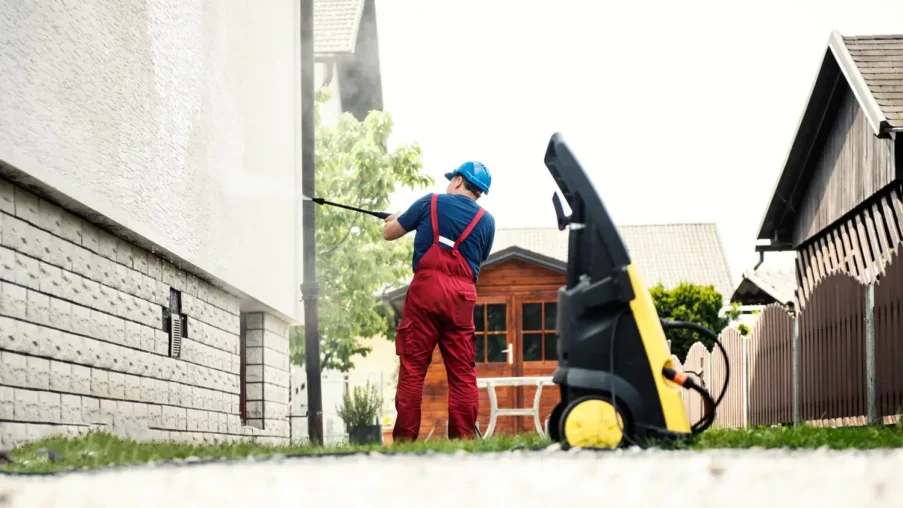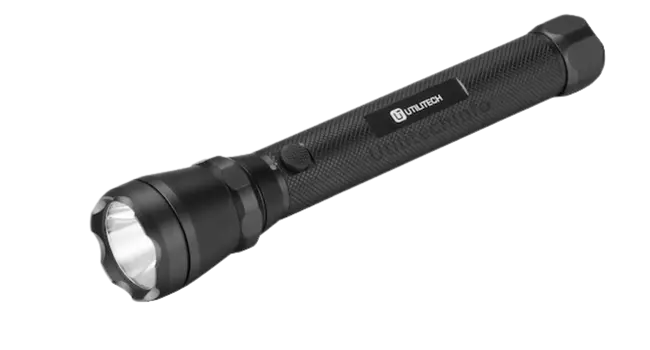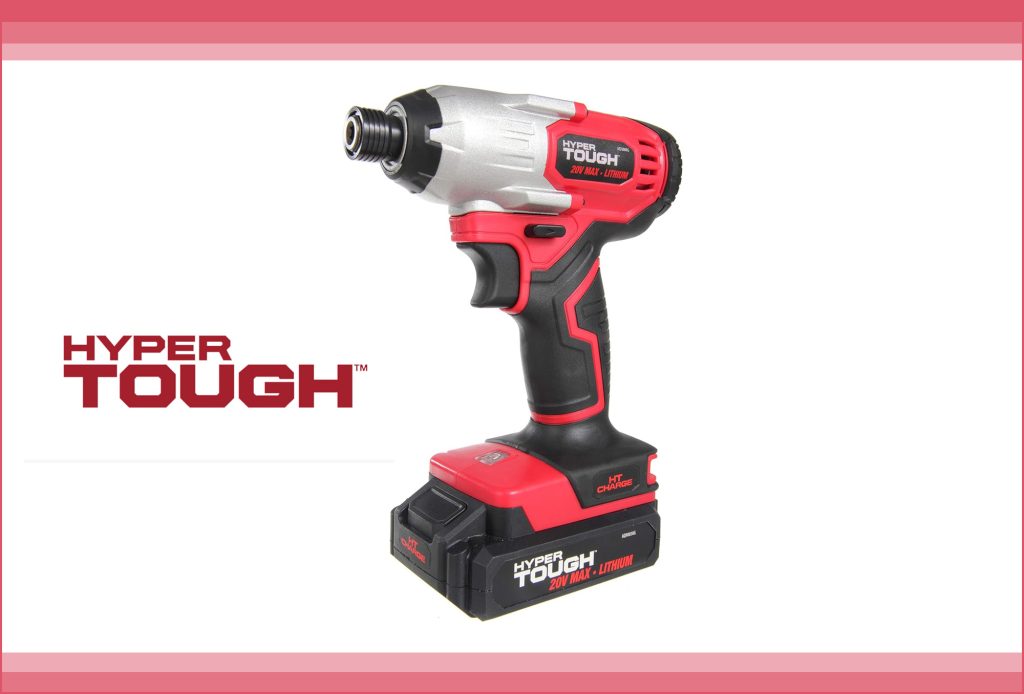Ever feel like your trusty pressure washer has suddenly lost its oomph? You pull the trigger, expecting that satisfying blast of cleaning power, but instead, you get… a gentle shower. Frustrating, right? You’re not alone. A weak spray is a common headache for pressure washer owners, but the good news is that often, the fix is simpler than you might think.
In this guide, we’ll walk you through the common culprits behind a weak pressure washer spray. We’ll start with the easy checks and move on to slightly more involved troubleshooting. Our goal is to empower you to identify the problem and, where possible, get your machine back to its full, grime-blasting potential. Whether you’re dealing with a residential electric model or a more robust gas-powered unit, many of the underlying principles remain the same.
And if, after trying these steps, you find yourself needing professional help, we’ll also touch on where you can find reliable pressure washer repair in New Jersey.
The First Line of Defense: Simple Checks
Before you start thinking about intricate repairs, let’s tackle the low-hanging fruit. Often, a weak spray can be traced back to something surprisingly simple.
1. The Water Supply
It might sound obvious, but ensure your water supply is fully turned on and that the hose isn’t kinked or tangled. A restricted water flow into the pressure washer is a prime suspect for low pressure output.
- Check the Faucet: Is the outdoor faucet fully open? Sometimes, it might seem open but isn’t quite all the way.
- Inspect the Garden Hose: Run your hand along the entire length of the garden hose leading to your pressure washer. Feel for any kinks, twists, or collapses that could be restricting water flow. Even a slight kink can make a big difference.
- Water Filter (if applicable): Some garden hoses or pressure washers have small inlet filters. Check if this filter is clogged with debris. A blocked filter restricts water intake.
2. The Nozzle: The Spray’s Gatekeeper
The nozzle is what shapes and directs the high-pressure water stream. If it’s clogged or damaged, it can significantly impact the spray’s strength and pattern.
- Visual Inspection: Take a close look at the nozzle tip. Can you see any visible dirt, debris, or mineral buildup? Even small obstructions can disrupt the flow.
- Cleaning the Nozzle: Most pressure washers come with a small nozzle cleaning tool (often a stiff wire). If you don’t have one, a paperclip or a thin piece of wire can also work. Turn off the pressure washer, detach the wand, and carefully poke the cleaning tool into the nozzle opening to dislodge any blockages. Rinse the nozzle with water afterward.
Pro Tip: Always clean the nozzle pointing away from yourself! You never know what might come loose.
- Check for Damage: Inspect the nozzle for any cracks, chips, or wear. A damaged nozzle can cause an uneven or weak spray. If you suspect damage, it’s best to replace the nozzle. Nozzles are relatively inexpensive and can make a noticeable difference.
3. The Inlet Screen: Protecting the Pump
Your pressure washer has an inlet screen where the garden hose connects. This small filter prevents larger particles of dirt and debris from entering the pump, which can cause damage and reduce performance.
- Locate the Inlet Screen: This is usually found at the water inlet port where you connect your garden hose.
- Inspect and Clean: Disconnect the garden hose. You should see a small, often cylindrical, screen. Gently remove it (you might need pliers). Rinse the screen under running water to remove any accumulated dirt or debris. A soft brush can help with stubborn particles. If the screen is damaged, it should be replaced.
Keeping this inlet screen clean is crucial for the longevity and performance of your pressure washer pump.
Digging Deeper: More Involved Issues
If the simple checks didn’t solve the problem, the issue might be a bit more involved. Let’s explore some of the more common culprits.
4. The Pressure Washer Hose: A Pathway Under Pressure
The high-pressure hose carries the water from the pump to the spray gun. It’s designed to withstand significant pressure, but over time, it can develop leaks or internal blockages.
- External Inspection: Carefully examine the entire length of the high-pressure hose for any visible signs of damage, such as bulges, cracks, cuts, or abrasions. Even a small pinhole leak can lead to a loss of pressure.
- Check Connections: Ensure that the hose is securely connected at both ends (to the pump and to the spray gun/wand). Loose connections can also cause pressure loss.
If you find a leak in the hose, you have a couple of options. For minor leaks, a pressure washer hose repair kit can sometimes provide a temporary or even a more permanent fix. These kits typically include patches or splicing connectors designed to withstand high pressure. You can often find these kits at local hardware stores or online. If the damage is significant or the hose is old and brittle, it’s generally recommended to replace the entire hose.
For those in the Garden State looking for solutions, searching online for pressure washer repair in New Jersey or visiting local auto parts or hardware stores can yield good results.

5. The Spray Gun and Wand: Control at Your Fingertips
The spray gun and wand assembly controls the flow of high-pressure water. Issues here can also lead to a weak spray.
- Trigger Mechanism: Sometimes, the trigger mechanism in the spray gun can become stiff or partially blocked, preventing full pressure from being released. Try repeatedly squeezing and releasing the trigger to see if it loosens up. You can also try flushing the gun with water while the pressure washer is off.
- Internal Blockages: Similar to the nozzle, the wand itself can sometimes become blocked with debris. Disconnect the wand from the gun and try flushing it with water to see if anything comes out.
- Leaks: Check the connections between the gun and the wand, and also along the length of the wand itself, for any leaks. Leaks will reduce the pressure at the nozzle.
6. The Unloader Valve: Regulating the Pressure
The unloader valve is a crucial component that regulates the water pressure. When you release the trigger, the unloader valve redirects the water flow back to the pump inlet or a bypass, preventing the pump from building excessive pressure. If the unloader valve is malfunctioning, it can lead to consistently low pressure.
- Symptoms of a Faulty Unloader Valve: You might notice a pulsating spray, inconsistent pressure, or a generally weak output.
- Troubleshooting (More Advanced): Diagnosing an unloader valve issue can be a bit tricky. Sometimes, you can try adjusting the unloader valve (if your model has an external adjustment). However, if you suspect a serious problem with the unloader valve, it might be best to consult a professional, especially if you’re looking for pressure washer repair in New Jersey. Replacing an unloader valve often requires some technical knowledge.
7. The Pump: The Heart of the Operation
The pump is the heart of your pressure washer, responsible for creating the high-pressure water flow. If the pump is worn, damaged, or has internal leaks, it will inevitably lead to a weak spray.
- Signs of Pump Problems: Consistent low pressure, unusual noises coming from the pump, or water leaking from the pump housing can indicate a pump issue.
- Common Pump Problems:
- Worn Seals: Over time, the internal seals in the pump can wear out, leading to a loss of pressure.
- Damaged Pistons or Valves: These critical components can become damaged due to wear and tear or from running the pump without a water supply (cavitation).
Pump repair can range from replacing seals to a complete pump replacement. Depending on the cost of a new pump versus the cost of repair (and your comfort level with DIY), you’ll need to decide on the best course of action. For significant pump issues, seeking professional pressure washer repair in New Jersey is often the most reliable solution.
When to Call the Professionals
While many pressure washer issues can be resolved with some basic troubleshooting and DIY, there are times when it’s best to call in the experts, especially if you’re located in New Jersey.
- Complex Pump Issues: If you suspect a major problem with the pump (e.g., internal damage, significant leaks), professional repair is usually recommended.
- Unloader Valve Problems: As mentioned earlier, diagnosing and repairing unloader valve issues can be complex.
- Electrical Issues (for electric models): If you suspect an electrical problem is contributing to the weak pressure, it’s crucial to have a qualified technician take a look for safety reasons.
Searching online for pressure washer repair in New Jersey will likely give you a list of local service centers and repair shops. Look for businesses with good reviews and a reputation for quality service.
Expert Insight: Don’t wait until a small problem becomes a big one. Addressing issues early can often save you money and extend the life of your pressure washer.
Maintaining Peak Performance: Prevention is Key
Once you’ve got your pressure washer spraying strong again, you’ll want to keep it that way. Here are a few tips for maintaining peak performance:
- Regular Cleaning: Periodically clean the nozzle, inlet screen, and any other accessible filters.
- Proper Storage: Store your pressure washer in a dry, protected area, especially during freezing temperatures. Freezing water can damage the pump and hoses. Consider using pump antifreeze if storing in cold conditions.
- Follow Manufacturer’s Instructions: Always adhere to the maintenance guidelines provided in your pressure washer’s manual.
- Inspect Regularly: Before each use, take a quick look at the hoses, connections, and nozzle for any signs of wear or damage.
By taking good care of your pressure washer, you can minimize the chances of encountering a weak spray in the future and keep your cleaning tasks efficient.
Conclusion: Getting Back to Full Blast
A weak pressure washer spray can be frustrating, but as we’ve seen, it’s often a sign of a simple issue that you can diagnose and potentially fix yourself. By starting with the easy checks – the water supply and the nozzle – and then moving on to inspect the hose, gun, and potentially the pump, you can systematically identify the cause of the problem.
And if you find yourself needing professional assistance, especially if you’re in New Jersey, remember that there are experienced technicians who specialize in pressure washer repair in New Jersey. Whether you need a simple pressure washer hose repair kit or more in-depth service, getting your machine back to its optimal performance will make your outdoor cleaning tasks much more effective and satisfying.
So, next time your pressure washer seems a little under the weather, don’t despair. Take a deep breath, follow these steps, and you’ll be well on your way to restoring that powerful spray you rely on.
FAQs: Your Pressure Washer Spray Questions Answered
-
Why has my brand new pressure washer got a weak spray? Even new pressure washers can sometimes have issues. Check the water inlet for any blockages, ensure the nozzle isn’t obstructed, and verify that your water supply is adequate. Sometimes, there might be air trapped in the system; try running it for a short period with the nozzle slightly loosened.
-
Can a kinked garden hose really cause a weak pressure washer spray? Absolutely! A kink in your garden hose significantly restricts the amount of water reaching the pressure washer, which directly impacts the output pressure. Always ensure your garden hose is free of kinks and bends.
-
Where can I buy a pressure washer hose repair kit in New Jersey? You can typically find pressure washer hose repair kits at most hardware stores, home improvement centers, and some auto parts stores in New Jersey. You can also search online retailers that ship to your location.
-
Is it worth repairing an old pressure washer with a weak spray, or should I just buy a new one? This depends on the age and condition of your pressure washer, as well as the cost of the repair. For minor issues, repair is often more cost-effective. However, if your machine is very old, has had multiple problems, or the cost of repair is close to the price of a new unit, it might be time to consider a replacement. Getting a quote for pressure washer repair in New Jersey can help you make an informed decision.
-
What’s the most common reason for a pressure washer to lose pressure over time? One of the most common reasons is wear and tear on the pump’s internal components, such as seals and valves. Over time, these parts can degrade, leading to a gradual loss of pressure. Regular maintenance can help prolong the life of your pump.





